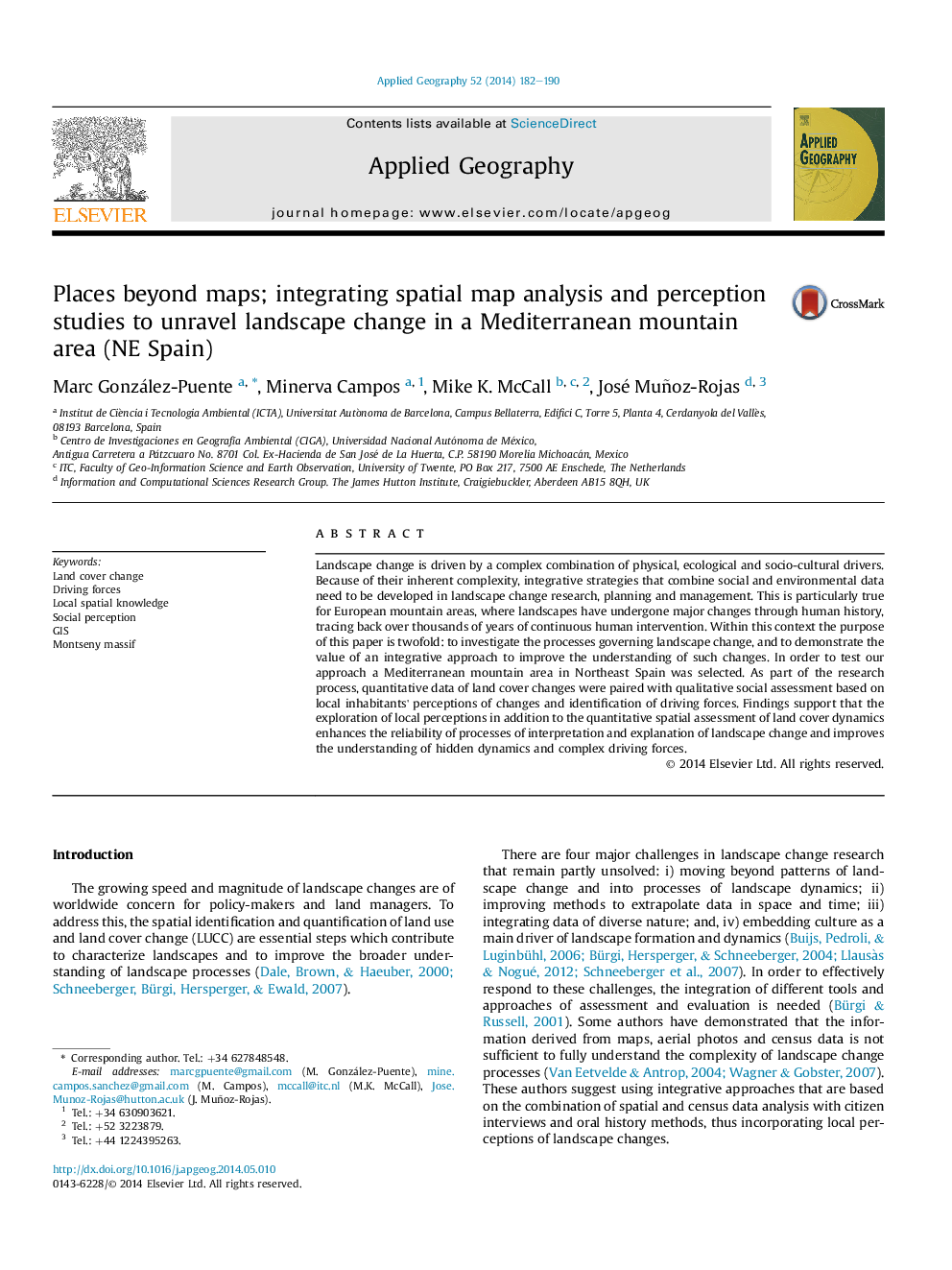| Article ID | Journal | Published Year | Pages | File Type |
|---|---|---|---|---|
| 6538769 | Applied Geography | 2014 | 9 Pages |
Abstract
Landscape change is driven by a complex combination of physical, ecological and socio-cultural drivers. Because of their inherent complexity, integrative strategies that combine social and environmental data need to be developed in landscape change research, planning and management. This is particularly true for European mountain areas, where landscapes have undergone major changes through human history, tracing back over thousands of years of continuous human intervention. Within this context the purpose of this paper is twofold: to investigate the processes governing landscape change, and to demonstrate the value of an integrative approach to improve the understanding of such changes. In order to test our approach a Mediterranean mountain area in Northeast Spain was selected. As part of the research process, quantitative data of land cover changes were paired with qualitative social assessment based on local inhabitants' perceptions of changes and identification of driving forces. Findings support that the exploration of local perceptions in addition to the quantitative spatial assessment of land cover dynamics enhances the reliability of processes of interpretation and explanation of landscape change and improves the understanding of hidden dynamics and complex driving forces.
Related Topics
Life Sciences
Agricultural and Biological Sciences
Forestry
Authors
Marc González-Puente, Minerva Campos, Mike K. McCall, José Muñoz-Rojas,
